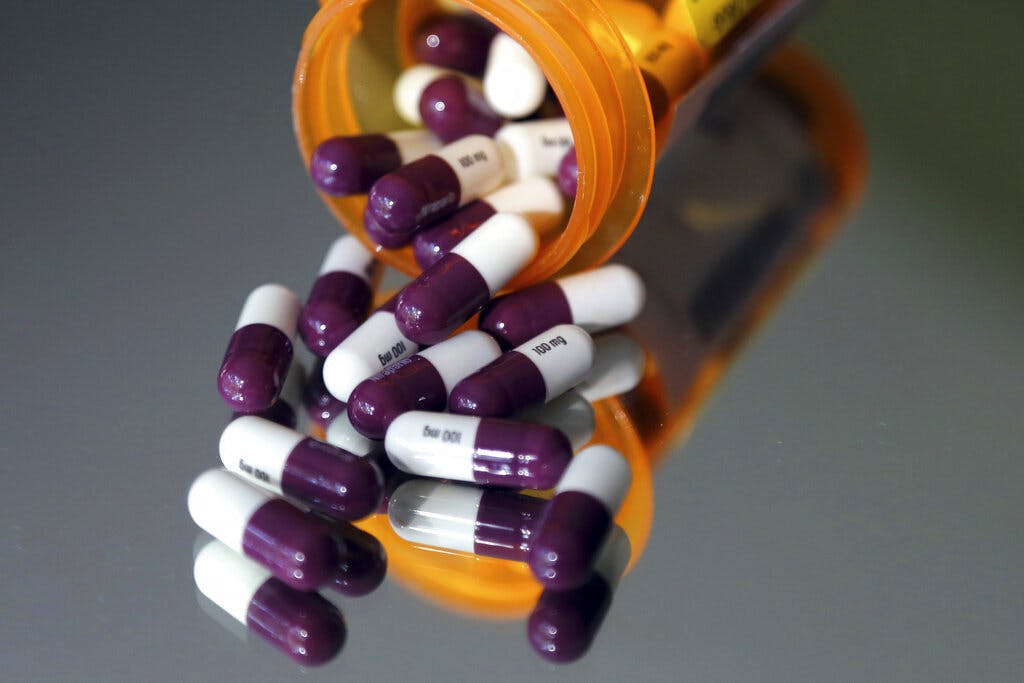Senate Bill Is First Serious Effort to Control Drug Prices in America
The Inflation Reduction Act of 2022 would be a huge win for Democrats going into the 2022 elections.

A friend was recently diagnosed with amyloidosis, a rare disease in which a protein builds up in organs such as the heart and kidneys. While not curable, there are treatments. A new one, Vyndamax, reduced mortality in patients who had amyloidosis in the heart by 41 percent after 5 years.
The hitch is Vyndamax’s cost: $225,000 a year. My friend’s copayment was $64,000 a year — a 70 percent “sale” but still outrageous. After a call to the insurance company, his cost was reduced to what most patients seem to be paying, a bit over $12,000 a year in copayments.
It is these kinds of numbers that have almost 90 percent of Americans — including Republicans — supporting Medicare drug price negotiations. While the Senate drug bill may not be as ambitious as earlier attempts at introducing drug price negotiations, it still constitutes a promising step forward — but should not be the last word on drug prices.
Drug prices have been rising at an unsustainable rate. In 2020, drug price increases in America outpaced inflation for half of all drugs covered by Medicare. High drug costs can impact medication adherence. About three in 10 Americans do not take their medications as prescribed due to cost. As the price for Vyndamaz shows, they also pose huge financial burdens for those already dealing with serious illnesses.
The high prices people in the United States face are an international anomaly. If you compare the average drug prices in the United States to other G7 countries, U.S. prices ranged from 209 percent of prices in Japan to 258 percent of prices in France.
Ultimately, we have been left footing the bill for the global pharmaceutical industry. A 2017 study examining just the top 20 best-selling drugs in the United States found domestic pharmaceutical companies generated 176 percent of their global research and development spending from American premium pricing.
The Senate drug bill is one of the first promising attempts at addressing high drug costs and lowering prices through negotiation. The bill allows the government to negotiate prices for drugs that lack generic or biosimilar equivalents covered by Medicare. In addition, the bill would require companies to pay rebates if they increase drug prices faster than inflation.
Medicare beneficiaries would also feel the positive effects of the bill. It will add a $2,000 cap to out-of-pocket spending on drugs from pharmacies. In 2020, more than 1 million Medicare beneficiaries spent more than these limits. Those with conditions such as cancer or multiple sclerosis who need to take high-cost drugs will especially benefit from these provisions.
This modest bill is projected to reduce the deficit by $287.6 billion over the next 10 years. To put it into context, drug spending in America is likely to exceed $5 trillion in that same period. That is about five percent savings — not bad, but no super sale.
Importantly, the bill will not torpedo innovation. Drug companies are constantly shrieking that any price controls will undermine their research and development of drugs for serious ailments. This is more hysteria than truth.
The projections based on history by independent experts is that the similar drug bill proposed last year would lead to only one — yes one — drug not coming to market over the next 10 years and nine more over the following 20 years. In the same 30 years, roughly 1,300 drugs are expected to be approved by the FDA. That hardly amounts to a kibosh on drug innovation.
The bill is not perfect — but what legislation is? First, those on Medicare should not expect to see cost reductions immediately. Indeed, price decreases will only begin to apply in 2026, and for only a few drugs.
By the end of the decade, negotiations will occur for prices on a total of only 20 drugs. Further, the drugs eligible for negotiations are limited to those that have been on the market for many years — nine years for pills and 13 years for the super high-priced biologics.
A big problem is that the negotiated prices will only be offered to Medicare beneficiaries. Americans who get their insurance through their employer or on the ACA exchanges will not benefit from the reductions — a provision that was in previous versions of the bill.
The best hope is that this bill is a start not a finish. It does not represent a structural change. Unlike many of our peer countries, we will still be without a standardized process that allows us to negotiate all drug prices.
More importantly it does not link the price of a drug with its health benefit, so that we pay more because the drug is giving us more health improvement in terms of reducing deaths or improving quality of life. Hopefully the next drug pricing bill will do that.
But the Inflation Reduction Act of 2022 is an important first step to reducing drug prices. It would also be a huge win for Democrats going into the 2022 elections, the culmination of 20 years of trying to allow Medicare to negotiate drug prices.
It will also be a huge win for controlling government spending. Most importantly, it will be a win for Medicare patients like my friend, who should not have to deal with the burden of thousands of dollars in drug costs when already dealing with the burden of a serious illness.

